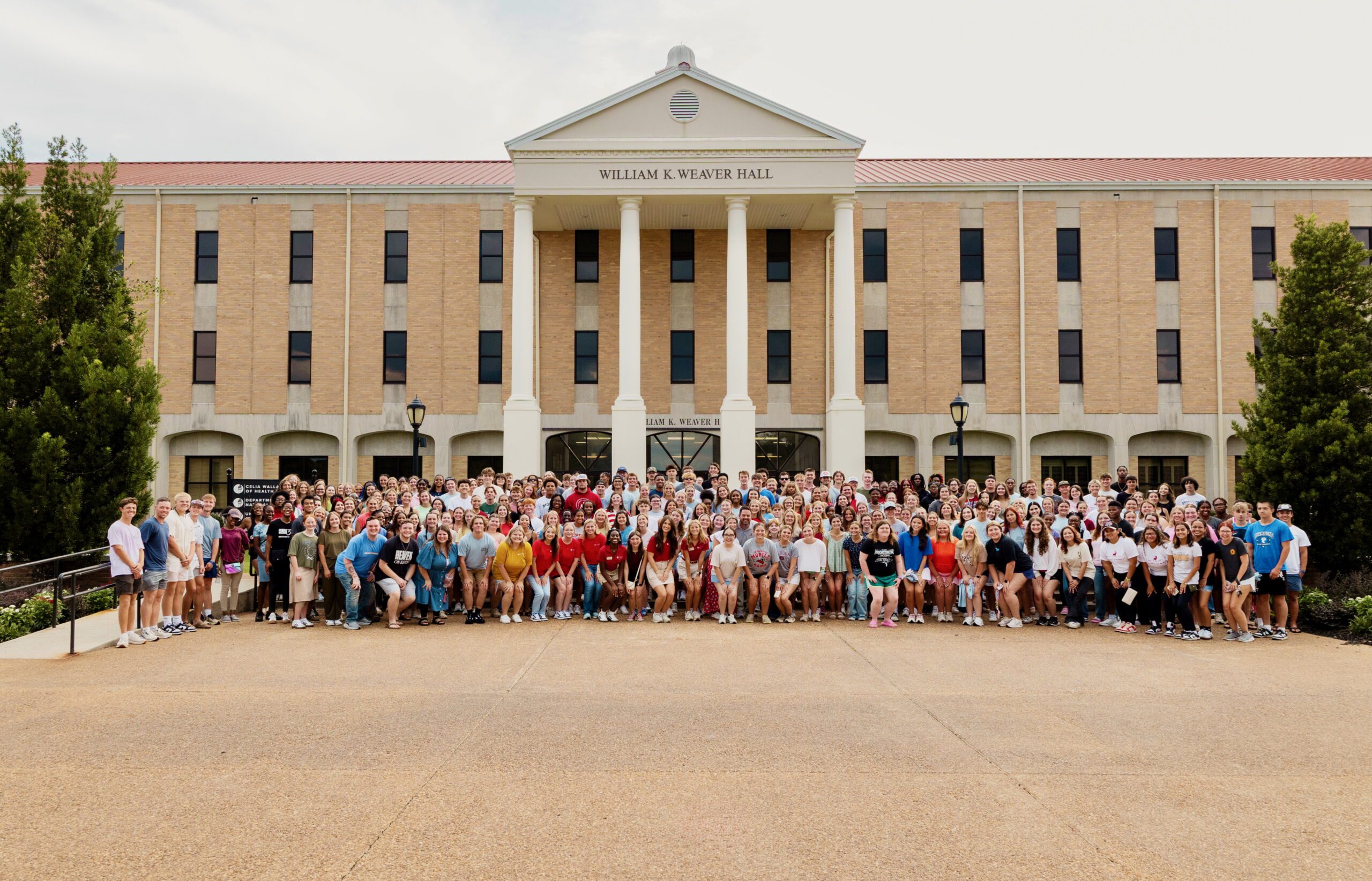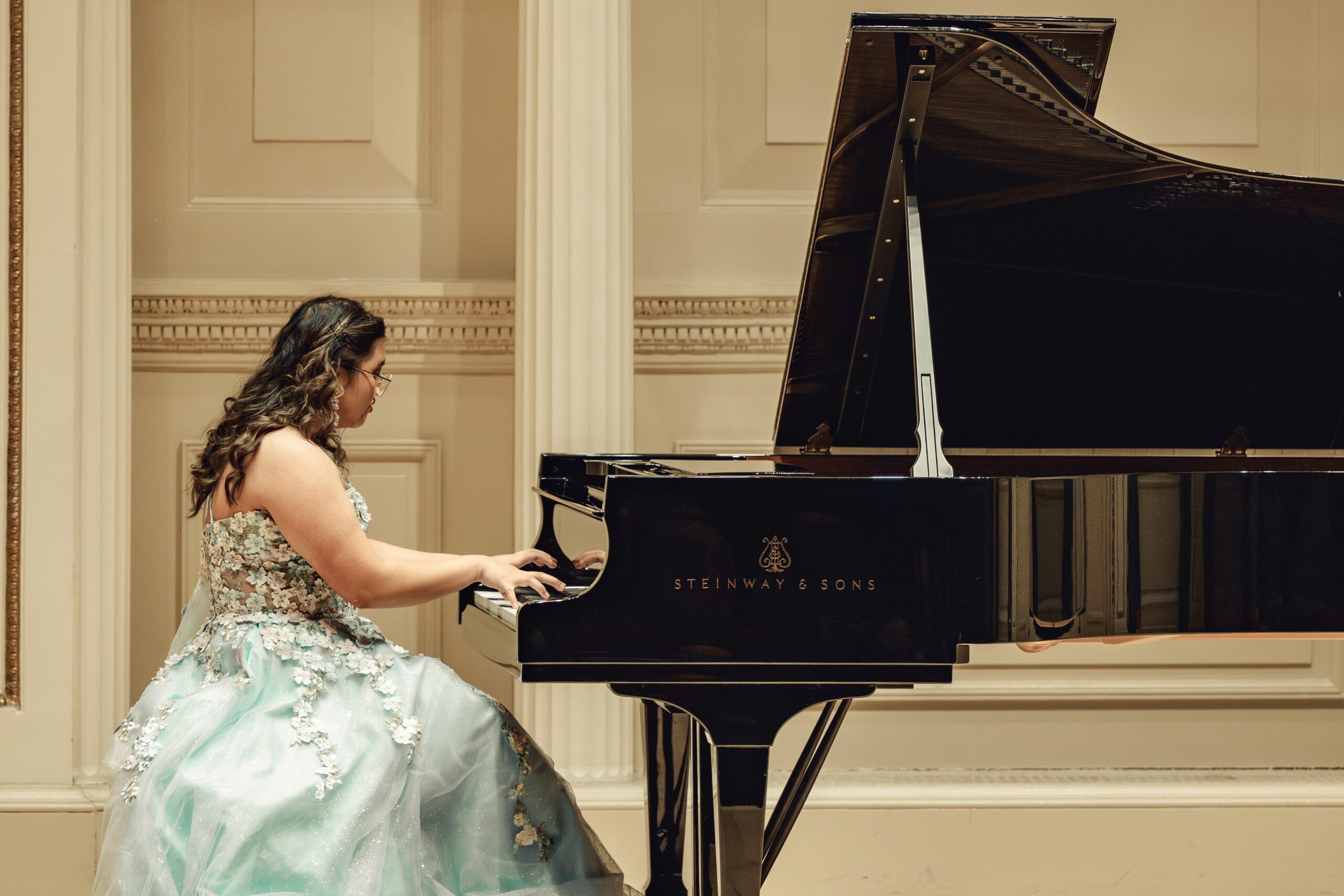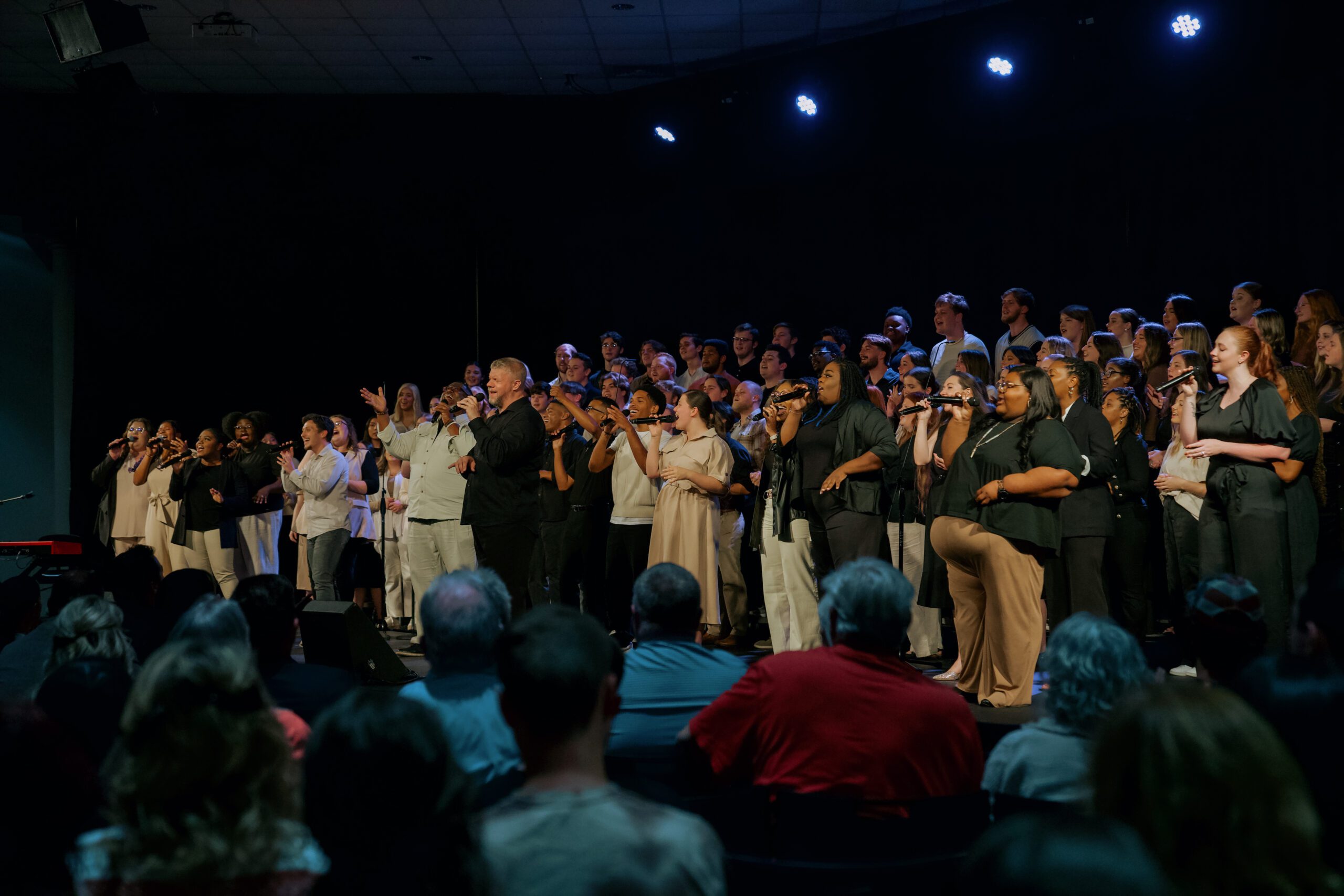Known for Missions: Nursing Grad Serves in NYC
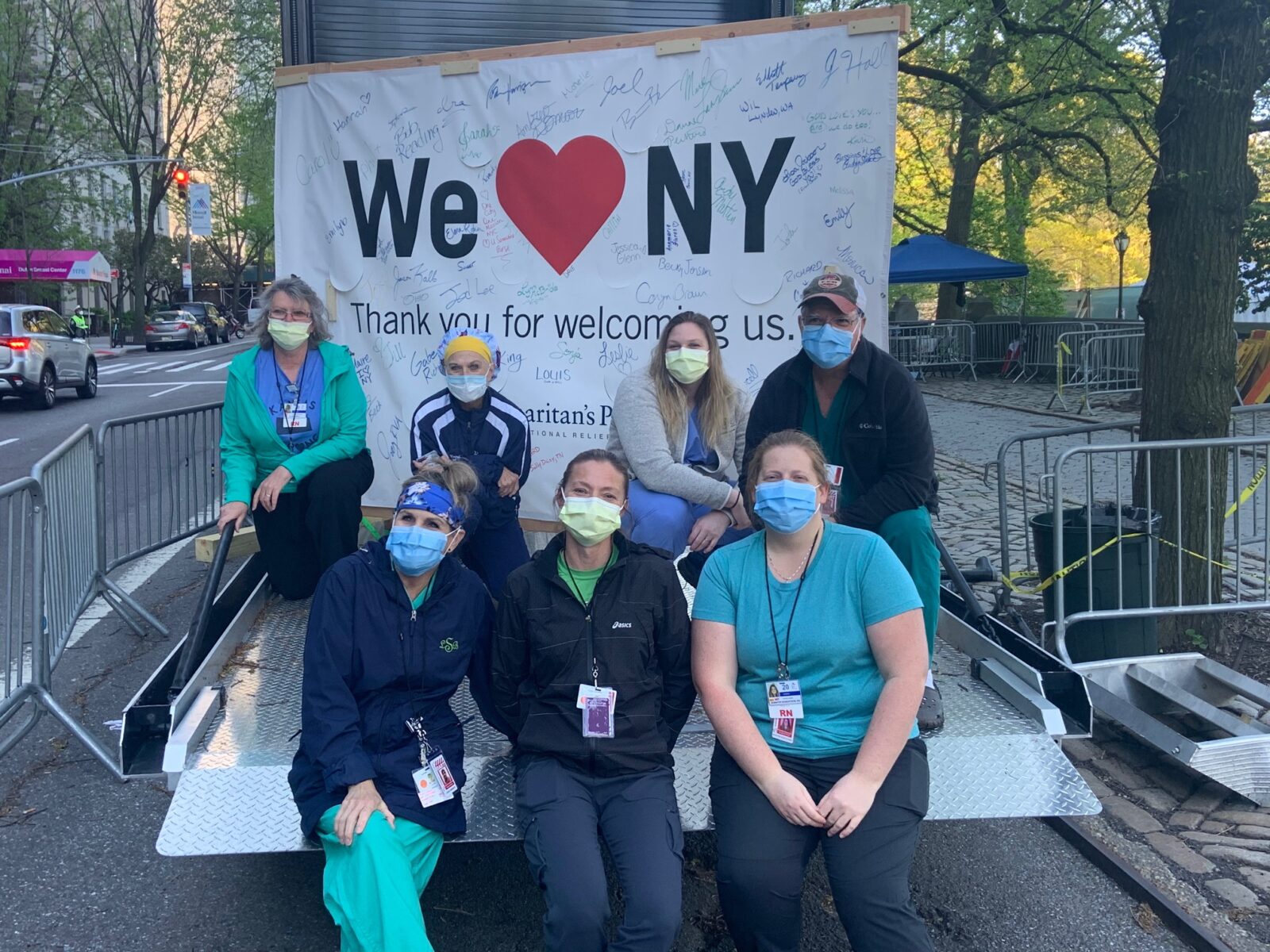
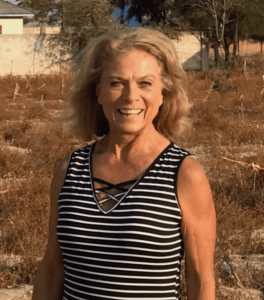
Reeda Taylor earned her Bachelor of Science in Nursing at the University of Mobile in 2010 with a specific purpose in mind: to do medical missions when her husband retired.
When Dr. Cecil Taylor retired as dean of the University of Mobile School of Christian Studies in 2013, the couple moved to Marshall, Texas, to be near family and discover new ways of serving God. Since then, Cecil has been interim pastor for five area churches and taught as a full-time professor and also adjunct at Wiley College, an historically black college. He is also working on a book about the Lord’s Prayer.
Reeda’s nursing degree and experience opened doors for her to serve in medical missions, on travel assignments, and in rehab settings for surgical and stroke patients. The couple has been on mission to Brazil, Peru and Honduras, and Reeda ventured to Tanzania, as well.
So when the call went out for healthcare professionals to care for people in the pandemic hot spot of New York City, Reeda answered. She partnered with Samaritan’s Purse to serve three weeks with a team assembled from across the nation. We asked her to tell us about her experience.
1. Why did you decide to volunteer in one of the nation’s hot spots?
I was reading an email from Samaritan’s Purse, which I get frequently, and saw the story about the Samaritan’s Purse COVID-19 response. I read further and found that medical personnel were needed. My thought was, “I am medical personnel – I could do this!” I was tremendously excited that I could be a small part of something so huge, really making a difference medically and spiritually in the lives of others. I completed the application and the interviews that followed, and within a couple of weeks, I was on my way to New York City! I know the Lord gave me a heart for missions when I was 12. He led me to this opportunity with Samaritan’s Purse.
2. What was a typical day like?
I worked the night shift, so every evening at 6 p.m. the bus would pick up the night crew and take us to Mount Sinai Beth Israel Hospital. Samaritan’s Purse staffed two floors at this hospital. We would meet in our break rooms, where dinner was waiting. The meals were generously donated by local restaurants and delis in NYC. We even had a local group donate Chick-fil-A one evening! We would then have a devotion and prayer. After that, we went through the meticulous process of getting ready to enter the “hot zone” where the patients were. There was a 20+ step process for going in the hot zone and for coming out of the hot zone – including many layers of personal protective wear as we provided critical care to COVID-19 victims. When we got off at 7 a.m., we would have breakfast in the break room, and the bus would take us back to the hotel. We would usually run across the street to CVS for miscellaneous items, then shower, sleep, and get up to do it all over again.
3. Can you tell us about an experience that stands out to you, where you really felt that God had brought you to this place for a particular purpose?
The doctors and nurse practitioners would make rounds on the floor and see the patients. I was rounding with the nurse practitioner assigned to one of my very first patients. After we talked with the patient and completed an assessment, we were able to encourage the patient and she wanted prayer, so we prayed for her. I was later able to give her a Bible. She said she had not had one since she was a child. I hope and pray that the witness we were able to share was a planted seed that someone else will water, and soon, another will reap that harvest.
Something else of great significance that added to the overall experience was the teamwork exhibited by the registered nurses, the care technicians, and the doctors/nurse practitioners. Their response when one of us asked for help with a task was phenomenal. All who could, came running!
We all came from different medical backgrounds and specialties – ER, OR, family practice, pediatrics, med surge, etc. What one team member lacked experience in was “right up someone else’s alley.” We all excelled in something.
4. How did your University of Mobile experience prepare you for serving in New York City, as well as in other locations throughout the world?
Going back to school and earning my BSN was one of the hardest things I have ever accomplished. I had grandchildren, for heaven’s sake! I was the oldest student in the classes, and I was older than many of the professors. But I am so glad I hung in there and did not quit. Working in healthcare has been very rewarding and afforded me many opportunities. I keep telling myself that the Lord has prepared me “for such a time as this.”
And, of course, I must talk about my mission trips with University Missions. I had been on several trips with Cecil (aka Dr. T) when I started work on my BSN. I remember going to Nova Fribourgo, Brazil, right after beginning the nursing program. Alice Younce and Kimberly Quiett happened to be on this particular trip, and they worked with me on taking manual blood pressures. Brazil is where I learned to take a manual blood pressure!
5. Anything else you’d like to add?
It was an honor to care for the residents of NYC who were battling the coronavirus! Our patients came in all shapes, sizes, colors, with different backgrounds, value systems, beliefs and languages. We loved them all and cared for them with genuine concern and professionalism. We Zoomed families so they could visit, prayed with them when we were asked, administered medication, assisted them in walking, and helped with personal needs. I will always treasure this experience.
I must say that Samaritan’s Purse is a well-oiled machine! I know this was not their first rodeo, but every detail and contingency had been thought through. Each staff member loves Jesus and has a heart for what they do. If I have my way, I will definitely work with them again.
Featured Image: Reeda Taylor pictured back row, second from left.
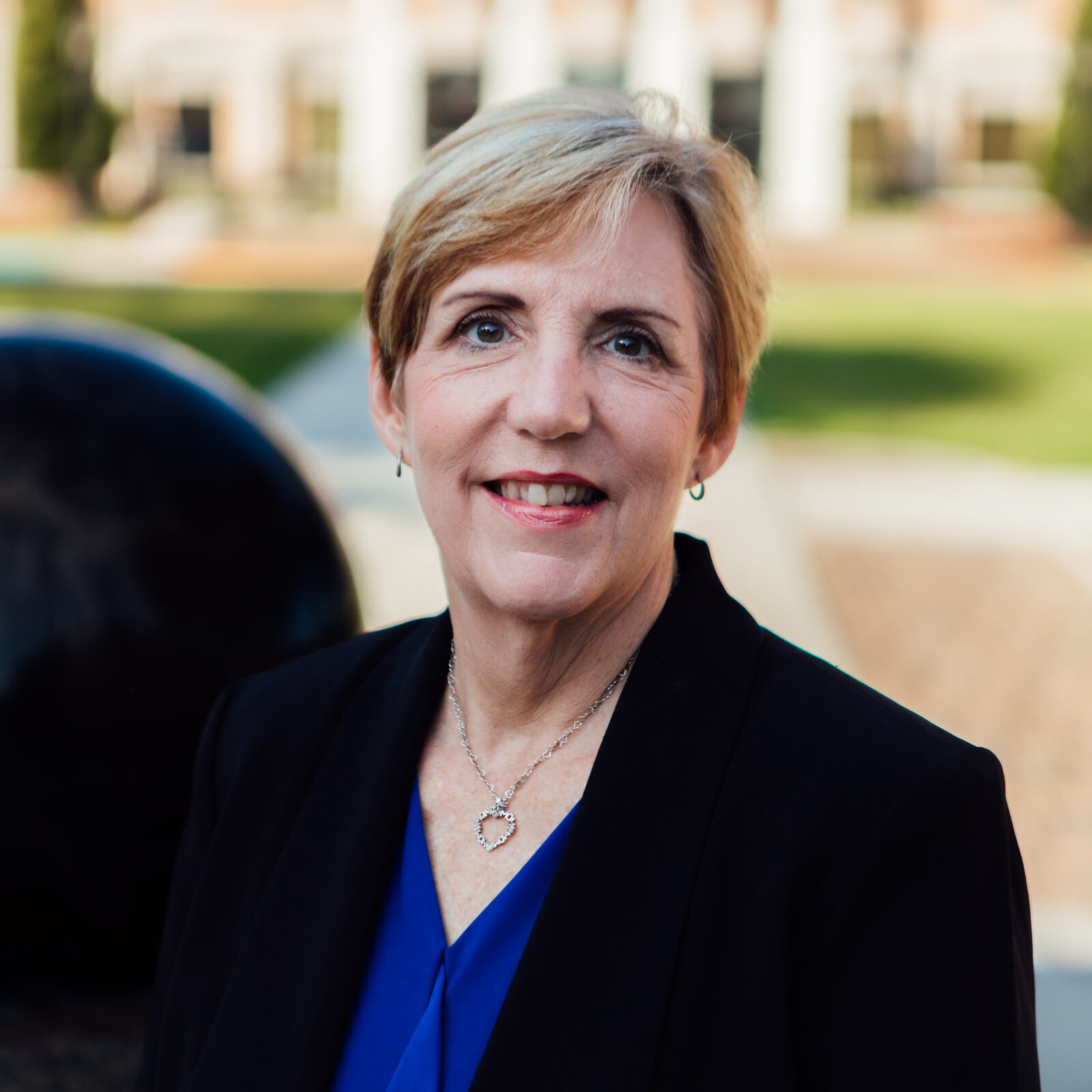
Kathy Dean uses her passion for storytelling and “playing with words” to share the stories of people, place and purpose that make the University of Mobile unique. As associate vice president for university communications, she manages media relations, edits the TorchLight alumni magazine, and oversees university communications. A former award-winning journalist, she is a two-time recipient of the Baptist Communicators Association grand prize for feature writing. Kathy and her husband, Chuck, live with three extremely loud miniature schnauzers.
